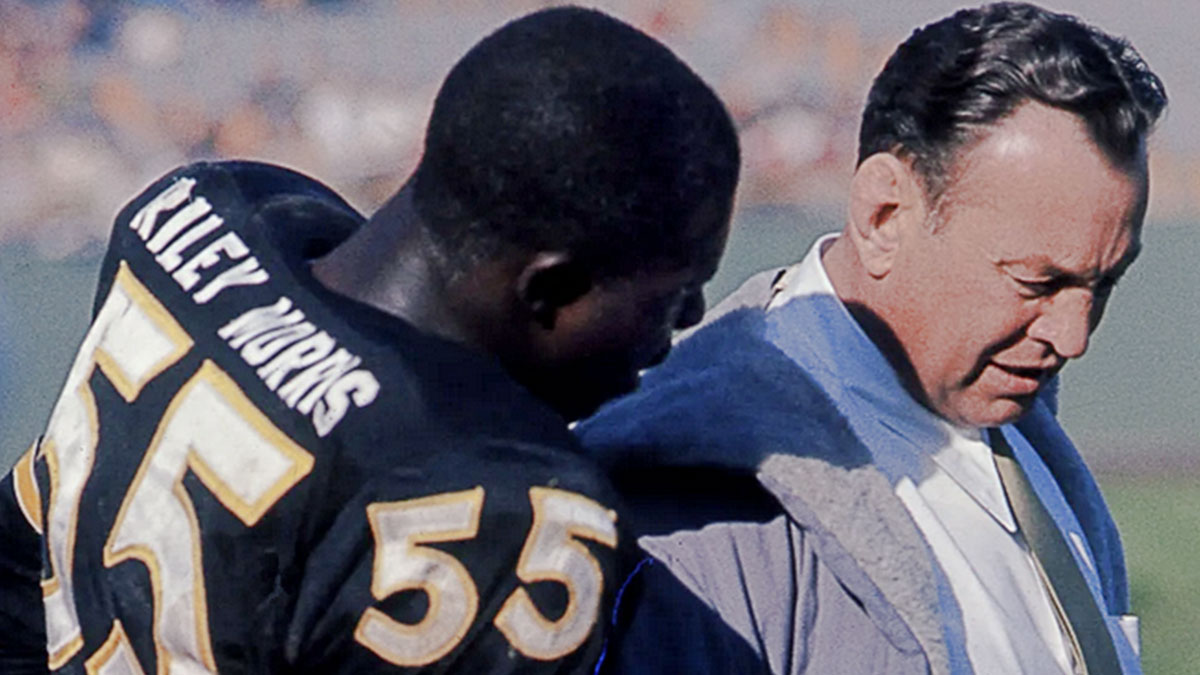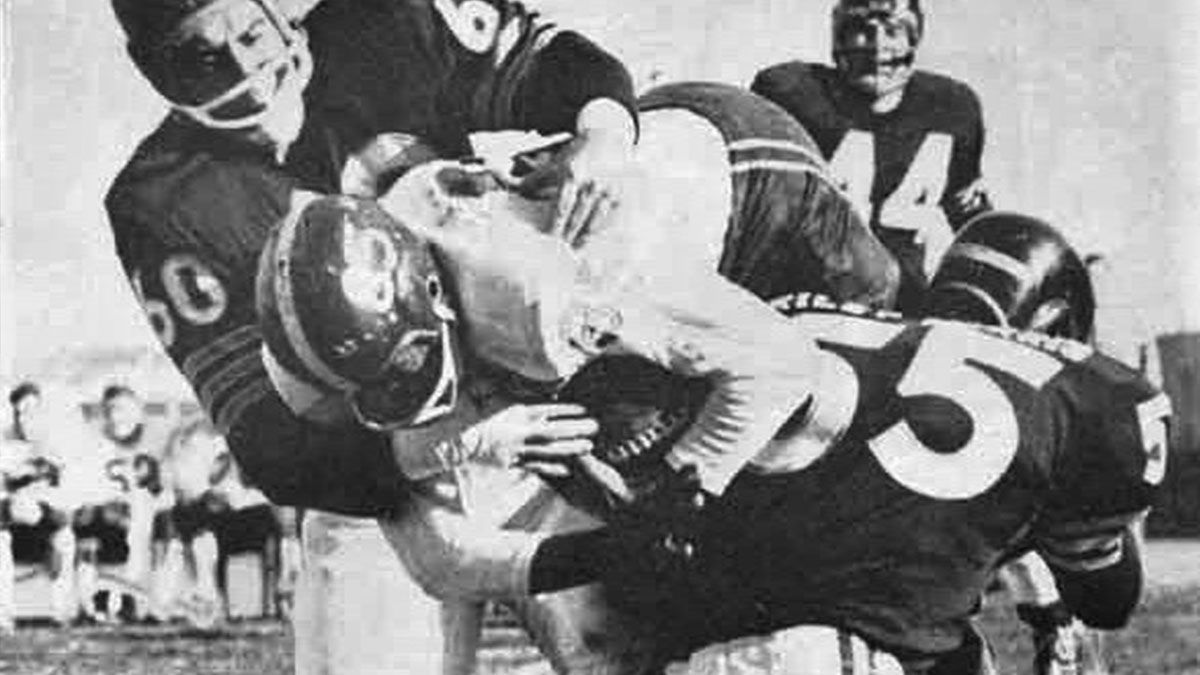Riley Morris might be the most fearsome NFL pass rusher that you’ve never heard of. At 6-foot-3, 235 pounds coming out of Florida A&M, he earned the reputation as “The Rattler” for his quick strikes on the field. “Too quick to block,” offense tackles said. “He could be the best [defensive] end in the league,” added an assistant coach.
He led the league with 10 sacks in 1960, and in a game against the Boston Patriots in 1961, he intercepted a Babe Parilli pass and raced 35 for the lone touchdown of his NFL career. Despite this, Morris was a journeyman and only played three full seasons in the league, primarily with the Oakland Raiders from 1960-62.
For much of his life, Morris contended with thoughts of what could have been but never backed away from a challenge. The Raiders cleaned house and cut Morris after a 1-13 campaign in 1962, but Morris didn’t give up on himself. Instead, he traveled to Patriots training camp on his own dime to prove he was worthy of a contract.
“Anybody who does this on his own wants to play football, and anybody with that kind of desire has to get a chance,” said Mike Holovak, head coach of the Patriots from 1961-68.
Despite being cut during camp, the Jacksonville, Florida, native decided to make New England his new home, eventually settling in New Bedford. He played several years of semi-professional football, leading the New Bedford Sweepers to consecutive championships in 1964-65.
After retiring from football, he took a management job at Polaroid in Norwood and joined Poquoy Brook Golf Club in Lakeville. He played golf competitively, including in the 1974 New England Amateur Championship at Metacomet Country Club (RI), where he was the only Black player in the field.

Morris’ football career was sandwiched between a lifelong love of golf, a game his father taught him before he ever strapped on a set of shoulder pads. At a young age, he desired to become a golf professional and work at a club, but being a Black kid in the South, he found football to be a more likely pathway. As determined as he was to make it in golf, Morris understood the reality: Black club pros were virtually non-existent.
“I’ve had some bad conversations about it,” Morris told the Boston Globe’s Joe Concannon in a lengthy article from 1974. “They’ve tried to knock it out of my mind. That doesn’t bother me. I’ve lived all my life at a disadvantage. Going into pro ball was a disadvantage when I did it in 1957.”
Those golf plans went dormant for years as he tried to make a living in football, but discrimination lingered in every corner of the country. His teams were barred from hotels because they had Black players on the roster. That list included a Boston hotel in Kenmore Square.
While the 1974 New England Amateur took place more than a decade after the PGA dropped its “Caucasian-only clause,” Morris was disheartened by the continued lack of Black participation in golf tournaments, and during his candid interview with Concannon at Metacomet urged his fellow Black golfers to persist just as he had during his career.
“I’m the only Black in this tournament. The other blacks, who are good players, don’t enter because they feel they won’t be accepted,” Morris said. “They feel they won’t get a fair shake. That’s the reason you don’t see more Black players here. They’re afraid to play. I had to overcome this. That does no good. You learn to ignore it.
“This is part of it. If you ignore it, it’ll go away. This is the way I’ve always been taught. I’m able to condition my mind to it. I just walk in and say, ‘Hello, I’m Riley Morris. I’m here to play.’ If you don’t want to accept me, tell me. I go up to ask Black players and say, ‘Go ask.’ Don’t say they won’t let me in. If you sit her [sic] and say they won’t let me in, you’ll never play.”
Even if systemic structures stood in his way, Morris still held golf in high regard. Like in football, he believed a disciplined mindset was the ultimate key to success.
“If you miss a tackle in football, everybody sees you. If you miss a putt, everyone sees you. The next one is the important one. It’s your temperament.”

Mass Golf is a 501(c)3 non-profit organization that is dedicated to advancing golf in Massachusetts by building an engaged community around the sport.
With a community made up of over 120,000 golf enthusiasts and over 360 member clubs, Mass Golf is one of the largest state golf associations in the country. Members enjoy the benefits of handicapping, engaging golf content, course rating and scoring services along with the opportunity to compete in an array of events for golfers of all ages and abilities.
At the forefront of junior development, Mass Golf is proud to offer programming to youth in the state through First Tee Massachusetts and subsidized rounds of golf by way of Youth on Course.
For more news about Mass Golf, follow along on Facebook, X, Instagram, and YouTube.